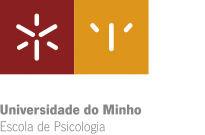The combined program articulates, in a flexible way, the three domains of research (clinical, forensic and educational). The program is simultaneously broad, in that it focuses on three main domains of intervention and research; and specific, given that in order to apply, students need to have a research project in one of the program domains, which implies their allocation to a supervisor from one of the three main research domains at the time of enrollment.
The structure of the program has three main course groups:
- Research Methods and Data Analysis, focusing on qualitative methodologies and mostly on advanced quantitative research methods;
- Advanced Studies in Applied Psychology, covering the main problems of research from each domain of research (clinical, forensic, and educational); and
- Research Project/Thesis, covering the development of the research activities as well the development of the dissertation. From the beginning of the program each student is allocated to one research topic (or research team) in the research project/thesis.
Advanced Studies I, II and III are the only courses with fixed content. All other UCs (i.e. courses) have flexible content. The Research Project/Thesis, corresponds to the work done by the students in the construction of their dissertation. The remaining UCs have recently been reorganized into modules, corresponding to a list of workshops (see schedule), each with 1,35 ECTS.
This model facilitates a hands-on teaching of research methodologies, in which students choose a set of seminars, with specific contents appropriate to their training and their needs in the construction of their thesis.


